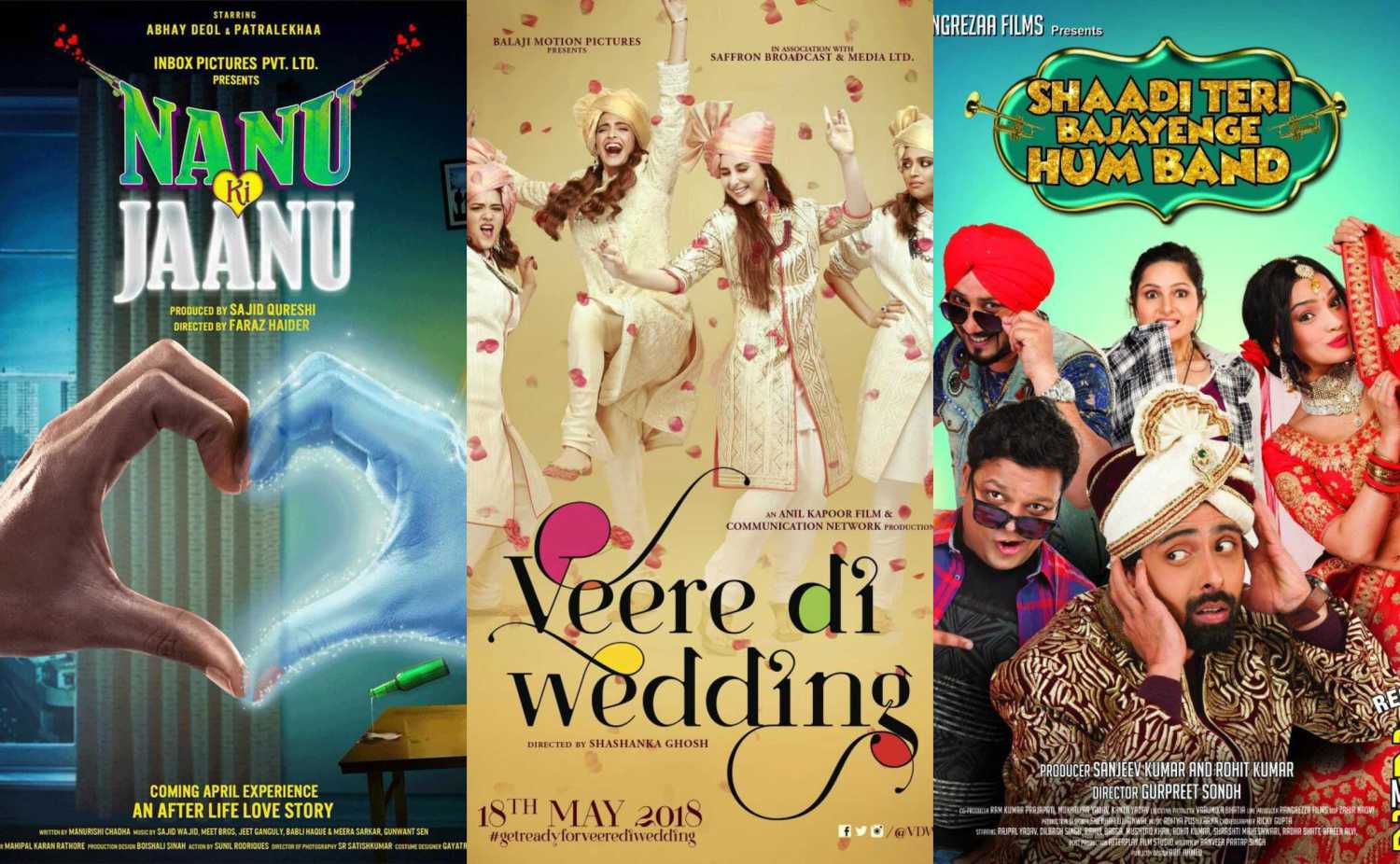The actor-dialogue writer, along with director Vishwaas Paandya, film historian SMM Ausaja and film and trade business analyst Girish Johar spoke of the reasons of Hindi films' titles reflecting a colloquial desi vibe.
80% of people in India find character like themselves in films: Manu Rishi Chadha
Mumbai - 02 Apr 2018 9:57 IST


IANS
Sonu Ke Titu Ki Sweety was quite a tongue twister. A slew of upcoming Hindi films' titles reflect a colloquial desi vibe, and experts say it helps to establish a connect with the desi audience.
Picture this; Batti Gul Meter Chalu, Veere Di Wedding, Dil Juunglee, Nanu Ki Jaanu, Shaadi Teri Bajaayenge Hum Band, Chanda Mama Door Ke, Sandeep Aur Pinky Faraar, Sui Dhaaga: Made In India, Ek Ladki Ko Dekha Toh Aisa Laga and Pal Pal Dil Ke Paas are some of the movies this year which are attracting curiosity with their quirky titles.
Interestingly, they are a mix of multi-starrers, comedies, sci-fi entertainers, romantic-dramas and experimental themes.
Actor-writer Manu Rishi Chadha, who has penned Nanu Ki Jaanu, starring Abhay Deol, said desi titles establish a personal connect with the audience from the word go.
"Words and names like Titu, Bittu, Tinku, Monu, Sonu, Bunty, Lucky, Nanu and Jaanu sound like your own house's kids and the audience feels like it is their own story. So, it's all an effort to reach the common family's heart, to get their love and adulation, which leads to good box office.
"As much as 80% of people in India find a character like themselves in films, so if a title gives them that, their heart and our box office gets set," Chadha told IANS, a news agency.
Sonu Ke Titu Ki Sweety put viewers in quite a fix as many of them struggled to get the title right, sometimes calling it "tweety". But it helps," said the film's director Luv Ranjan.
Sonu Ke Titu Ki Sweety review: This bromance is just another Punchnama reload
"I have always had a thing for quirky titles like Sonu Ke Titu Ki Sweety, like my own Pyaar Ka Punchnama. They take time to get registered in the minds of the audience, but when they do, they become memorable," he said.
Baa Baaa Black Sheep director Vishwaas Paandya said the film's title — based on the famous nursery rhyme — has a significance.
Baa Baaa Black Sheep review: Vishwaas Pandya's film more than three bags full of ham
"Maniesh Paul plays the central character and his name in the movie is Baba. Also, when I was writing the film, I thought all the characters in the movie were black in some way or the other, that's why Baa Baaa Black Sheep.
"The after thought was that it's the second most searched nursery rhyme on the internet, so the recall value was great," he said.
Quirky titles with an informal and conversational sound are not a new trend.
Film historian SMM Ausaja cited how movie makers have been using this formula to attract attention since years.
Colouring it right: How Red Chillies is setting the tones for the film industry
"Take a film like the 1955 film Garam Coat or the 1956 movie Chhoo Mantar... Then there was Chameli Ki Shaadi (1986) or more recent ones like Utt Pataang (2011), Bhagam Bhag (2006)... Films of Johnny Walker and Bhagwan Dada had desi titles... Most of such quirky names are comedies which require amusing titles," Ausaja told IANS.
He said using offbeat titles not just amps up the audience's curiosity level, but also helps in retaining a movie in their minds.
According to film and trade business analyst Girish Johar, the trend is becoming more visible with the changing taste of the audience, which has gradually taken a liking to stories that are Indian at heart and based in the hinterlands.
"The audience wants to watch realistic stories, and draw entertainment in a realistic way. So, the stories and also the titles are selected in that particular manner," he said.


